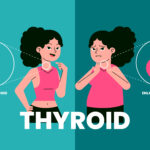As an expectant mother, you and your baby’s health are most important. During pregnancy, there is a nutrient that helps you take care of yourself and your baby’s health is taking vitamin d3. So, taking vitamin d3 in pregnancy is very important.
There is an important link between vitamin d3 and pregnancy because it’s crucial for your baby’s development and bone growth. In this article, we will explore the main 7 reasons why pregnant women must take vitamin d3 supplements and the benefits of vitamin d3.
7 Reasons To Take Vitamin D3 in Pregnancy
1. Supports Fetal Development
Vitamin d3 is crucial for your child’s proper development. Considerably, it plays a significant role in the development of bones, teeth, and muscles.
According to the studies, adequate levels of vitamin d3 in pregnancy may lead to healthier outcomes for the baby and reduce the risk of developmental issues.
Bone health
Vitamin d3 supplements help you in the absorption of calcium and phosphorus, which are essential for the development of the fetal skeleton.
Inadequate levels of vitamin d3 can lead to complications in newborn babies such as rickets in infants, a state characterized by weak or soft bones.
Muscle development
Adequate levels of vitamin d3 supplements are also interconnected with muscle strength in infants.
Studies have shown that children with sufficient vitamin d3 in pregnancy have better muscle functions as they grow.
Brain development
Vitamin d3 plays a crucial role in brain development. It affects the expression of genes involved in brain development and function. Adequate levels during pregnancy may help optimal brain development in the fetus.
2. Reduces Risk of Pregnancy Complications
Research shows that deficiency in vitamin d3 may lead to increased complications and risk of pregnancy, such as preeclampsia and gestational diabetes.
By taking vitamin d3 supplements you can prevent these risks and ensure a smoother pregnancy journey.
Preeclampsia
This condition affects blood pressure and can lead to serious complications for you also for your baby.
Studies have shown that mothers with adequate levels of vitamin d3 are likely to develop less preeclampsia.
Gestational Diabetes
Vitamin d3 plays a crucial role in insulin sensitivity. Expectant women with low levels of vitamin d3 are at higher risk for the development of gestational diabetes, which is harmful to you and your baby, and with vitamin D3 supplements you can prevent it.
Preterm Birth
Some studies indicate that low vitamin D3 levels may be associated with an increased risk of preterm birth. Make sure to intake vitamin D3 which may help you to reduce this risk, contributing to a full-term pregnancy.
3. Boosts Immune System
During pregnancy, your immune system goes through a lot of changes, which make you more sensitive to infections.
Vitamin D3 helps to regulate the immune system, providing a protective effect. Adequate levels of vitamin D3 supplements can help to prevent you from infections, ensuring both you and your baby remain healthy.
Infection Prevention
Research shows that vitamin D3 can enhance the pathogen-fighting effects of monocytes and macrophages—white blood cells that are crucial for immune defense. This is particularly important during pregnancy when the body is more vulnerable.
Respiratory Health
Some studies have indicated that enough vitamin D3 levels may reduce the risk of respiratory infections, which can be more severe during pregnancy.
Autoimmune Disorders
Adequate vitamin D3 levels may also help to reduce the risk of autoimmune disorders, which can be exacerbated during pregnancy. This is important for maintaining overall health and well-being.
4. Supports Bone Health
Maintaining healthy bones is crucial during pregnancy, especially for the mother. Vitamin D3 is vital for calcium absorption, which is essential for bone health.
Inadequate levels of vitamin D3 can lead to osteoporosis and other bone-related issues later in life.
Calcium Absorption
Vitamin D3 facilitates the absorption of calcium in the intestines. Expectant women need higher calcium levels to support the growing fetus, and vitamin D3 ensures that calcium is effectively utilized.
Long-term Benefits
Adequate vitamin D3 in pregnancy not only supports your bone health but also sets the foundation for your baby’s skeletal health. This can lead to a lower risk of bone-related issues in your child as they grow.
Postpartum Recovery
After giving birth, it is crucial to maintain adequate vitamin D3 levels which can aid in the recovery process, helping to restore bone density and overall health.
5. Reduces Risk of Autism and ADHD
Research suggests a connection between vitamin D3 deficiency during pregnancy and an increased risk of neurodevelopmental disorders such as autism and ADHD in children.
Taking vitamin D3 supplements may help to reduce this risk, and encourage better cognitive development for your baby.
Neurodevelopmental Impact
Some studies suggest that adequate levels of vitamin D3 in pregnancy may relate to a lower risk of autism spectrum disorders (ASD) and attention-deficit/hyperactivity disorder (ADHD) in children.
The exact devices are still being researched, but vitamin D3 is thought to be involved in brain development and function.
Cognitive Function
Vitamin D3 plays a crucial role in the development of cognitive functions, involving memory and learning.
Assuring sufficient levels during pregnancy could contribute to better cognitive outcomes for your child.
Longitudinal Studies
Recently research continued to explore the long-term effects of maternal vitamin D3 levels on child development, highlighting the importance of monitoring and maintaining adequate levels throughout the whole pregnancy.
6. Mood Regulation
Pregnancy is a time of emotional ups and downs, and maintaining mental health is most important during pregnancy.
Vitamin D3 has many benefits that are shown to influence neurotransmitters that regulate mood, such as serotonin and dopamine.
Adequate levels of vitamin D3 may help to reduce the risk of depression and anxiety during pregnancy.
Depression and Anxiety
Studies show that vitamin D3 supplements can reduce symptoms of depression and anxiety in pregnant women.
This is mostly important, as untreated mental health issues can have negative impacts on both you and your baby which leads to depression and other mental issues.
Postpartum Mood Disorders
Adequate levels of vitamin D3 during pregnancy may also help to reduce the risk of postpartum depression, a condition that affects many new mothers. Ensuring sufficient intake can help overall emotional well-being.
Holistic Approach
While vitamin D3 is not the only treatment for mood disorders, it can be a valuable part of a holistic approach to mental health during and after pregnancy.
7. Easy to Incorporate into Prenatal Care
The mixture of vitamin D3 supplements in your prenatal care routine is straight. Many prenatal vitamins include vitamin D3, making it easy to ensure that you’re getting enough of this essential nutrient.
Always consult with your doctor before starting any new supplements to determine the right dosage for you.
Prenatal Vitamins
Most prenatal vitamins contain vitamin D3, together with other essential nutrients for pregnancy.
However, the amount of vitamin D3 can vary between brands, so it’s essential to check the label before intake.
Dietary Sources
On the other hand, supplements are often important, but here are some sources through which you can increase your vitamin D3 intake by dietary sources.
Fatty fish (like salmon and mackerel) fortified dairy products, and mushrooms are good sources of vitamin D3.
Sun Exposure
Natural sunlight is an important source of vitamin D3. When you spend most of your time outside it helps your body to synthesize vitamin D3, but it’s important to balance sun exposure with skin protection to reduce the risk of skin cancer.
Additional Considerations
Vitamin D3 and Skin Tone
Mostly women with darker skin tones may be at a higher risk level of vitamin D3 deficiency due to reduced skin synthesis of vitamin D3 from sunlight.
This is crucial for the darker skin tone of women to intake vitamin D3 supplementation to prevent vitamin D3 deficiency.
Melanin Levels
Women with higher melanin levels in the skin can prohibit the production of vitamin D3 from sunlight, leading to a greater likelihood of deficiency. Pregnant women with darker skin should be particularly observant about their vitamin D3 intake.
Vitamin D3 and Obesity
Obese pregnant women may also be at a higher risk of vitamin D3 deficiency. This is because vitamin D3 is fat-soluble, and excess body fat can lead to lower levels of available vitamin D3.
Storage in Fat
Vitamin D3 can be stored in fat tissue, which may cause lower bioavailability for those with higher body fat percentages.
This highlights the importance of monitoring vitamin D3 levels in pregnant women with obesity.
Vitamin D3 and Other Nutrients
Vitamin D3 works cooperatively with other nutrients, such as calcium and magnesium, to support bone health and other bodily functions. Ensuring adequate intake of these nutrients is also important during pregnancy.
Calcium and Magnesium
Both calcium and magnesium are essential for various bodily functions, including muscle and nerve function.
Adequate vitamin D3 levels help ensure that these minerals are effectively absorbed and utilized.
Balanced Diet
A well-rounded diet that includes a variety of nutrients will support overall health during pregnancy. Consider discussing dietary plans with a healthcare provider or nutritionist.
Conclusion
In summary, taking vitamin D3 supplements during pregnancy is crucial for both maternal and fetal health.
From supporting fetal development to reducing the risk of complications, the benefits of vitamin D3 are numerous.
By ensuring adequate levels of vitamin D3 during pregnancy, you can promote a healthier pregnancy and contribute to the well-being of your child.
Disclaimer
Get Health Hacks is a digital publisher and providing health and wellness content as general information. Our purpose is to provide you information, hacks, and guides to learn and achieve health goals. The content on our website, newsletter, and socials including text, graphics, images, and other material is general in nature. You should have to consult your healthcare provider before starting any nutrition, diet plan, exercise, fitness training, and wellness program.



